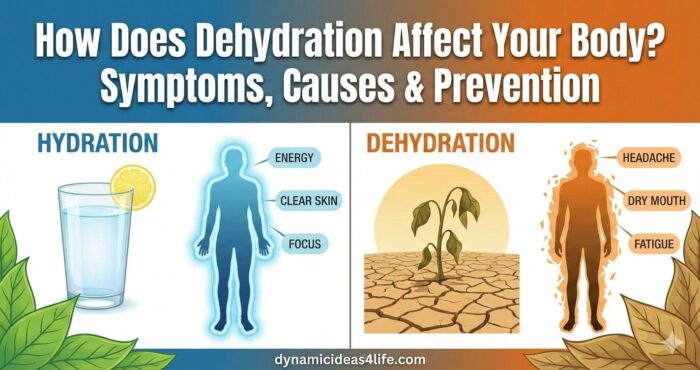Understanding low stomach acid as one of the many important factors towards optimal digestion is fundamental to our overall well-being. An unfortunate reality is that low stomach acid, clinically known as Hypochlorhydria, is a condition that often goes unnoticed until its symptoms become severe.
It is a subject that requires careful consideration and understanding due to the broad range of symptoms it can manifest such as bloating, indigestion, heartburn, acid reflux, and more.
Moreover, discerning low stomach acid’s varied causes, which can range from dietary habits to genetic influences, is vital. Alongside recognizing these signs and causes,
this article will detail the diagnosis procedures and treatment options, aiming to provide a comprehensive understanding of this medical condition.
Understanding Low Stomach Acid: Symptoms, Causes, and Diagnosis
Recognizing the symptoms of low stomach acid levels, scientifically known as hypochlorhydria, is key to correctly diagnosing the condition. Some of the most identifiable signs include bloating, indigestion, heartburn, reflux, and undigested food in the stool.
You may also experience a general feeling of discomfort in the stomach and gut, as your body struggles to correctly digest the food you eat due to insufficient levels of stomach acid.
Common Digestive Complaints
Bloating often occurs when the stomach doesn’t produce enough acid to efficiently digest proteins, resulting in the digestive process taking longer than normal. This can lead to excessive accumulation of gas and noticeable bloating.
Similarly, indigestion is a direct result of this delay in the digestion process, causing discomfort and even abdominal pain.
Heartburn, another commonly reported symptom of low stomach acid, is quite paradoxical as it’s traditionally associated with too much stomach acid. However, inadequate stomach acid often leads to a condition called gastroesophageal reflux disease (GERD), wherein the weak acid from the stomach flows backward into the esophagus, causing heartburn.
If you notice undigested food in your stools, it’s a clear indication that your food isn’t being broken down properly in the stomach. This points to a deficiency in stomach acid, as it’s a key component in breaking down food particles.
Nutritional Deficiencies
When the body doesn’t produce enough stomach acid, it has difficulty absorbing certain vitamins and minerals such as vitamin B12, iron, calcium, and magnesium, which are essential for overall health.
Consequently, individuals with low stomach acid may present with signs of mineral and vitamin deficiencies such as fatigue, weakness, and a weakened immune system.
Hair loss and weak nails are also common signs as malabsorption of nutrients in individuals with low stomach acid can lead to hair thinning and brittle nails.
Beware of Other Underlying Conditions
It’s crucial to remember that these symptoms are not distinct to low stomach acid levels alone. They can be indicative of other medical conditions such as irritable bowel syndrome (IBS), coeliac disease, and even stomach ulcers.
Moreover, not everyone with low stomach acid levels will present all these symptoms. The severity and presence of symptoms can vary widely among different individuals, making hypochlorhydria a notoriously difficult condition to diagnose.
Therefore, always consult with a healthcare provider if you suspect you may have low stomach acid.
Investigating Low Stomach Acid
Should you be encountering symptoms that lead you to suspect low stomach acid, there are several diagnostic methods at your disposal. Most highly regarded among these is the Heidelberg stomach acid test, often referred to as the gold standard for identifying hypochlorhydria.
Supplementary tests might include;
- the gastric acid secretion test,
- serum gastrin level test, and
- the Baking Soda Stomach Acid Test.
However, It is crucial that these tests be carried out with the oversight of a medical professional who is suitably qualified. If you purchase any of these tests online make sure to enquire beforehand.
Causes of Low Stomach Acid
Nutritional Considerations
An inadequate intake of essential nutrients such as zinc and vitamin B6 could engender low stomach acid. The role of Vitamin B6 is vital in the production of stomach acid, just as zinc is a primary constituent of enzymes that foster the creation of gastric acid.
Conversely, an increased intake of sugar, processed foods, and alcohol has the potential to lower gastric acid levels. These items can cause a disturbance to the body’s natural gut bacteria equilibrium, inciting inflammation and negatively affecting stomach cells’ functionality.
Lifestyle Choices
Certain lifestyle habits can negatively affect stomach acid levels. Routine use of antacids, proton pump inhibitors, and other acid-reducing medications can diminish stomach acid production. Chronic use of non-steroidal anti-inflammatory drugs (NSAIDs) can also contribute to lowered stomach acid, as these medications may lead to gastritis, a condition that inflames the stomach lining and hampers acid production.
Smoking and excessive alcohol consumption are other lifestyle factors that can suppress stomach acid production. This should be a big consideration for those who suffer from this condition.
The Role of Genetics
Genetic factors may potentially influence stomach acid levels as well, though more research is needed in this area. Some studies suggest a genetic link to conditions such as Zollinger-Ellison syndrome, which can result in high levels of gastrin, a hormone that stimulates the production of stomach acid. Something that can paradoxically lead to both hyper-and hypochlorhydria – too much or too little stomach acid.
Impact of Stress
Stress can also impact stomach acid production. The body’s response to stress is a complex cascade of hormonal changes, including a decrease in stomach acid secretion. When stress becomes chronic, it can lead to consistently low levels of stomach acid, impairing digestion, and nutrient absorption.
Age-Related Decline
As we age, the body’s capacity to produce stomach acid naturally declines. This decline can be due to a decrease in gastrin, the hormone that stimulates the secretion of gastric acid. Additionally, age-related conditions such as atrophic gastritis can damage stomach cells, leading to lower acid production.
Related Health Concerns
Several health issues can result in low stomach acid. A Helicobacter pylori (H. pylori) infection, for example, can disrupt the stomach’s acid-producing cells, leading to diminished acid production. Autoimmune diseases such as rheumatoid arthritis or Sjögren’s syndrome can initiate an immune response against one’s own body cells, including the cells in the stomach, thereby reducing stomach acid production.
Conditions that alter the overall health of the gut, like small intestinal bacterial overgrowth (SIBO) or leaky gut syndrome, may also play a part in low stomach acid. Acknowledging these potential causes of low stomach acid can promote comprehension and guide the way toward personalized treatment strategies.
Diagnosis and Testing Options for Low Stomach Acid
Identifying Low Stomach Acid
Low stomach acid, also known as hypochlorhydria, describes a state where the stomach doesn’t produce enough hydrochloric acid. This acid plays a crucial role in digestive processes and in the absorption of essential nutrients. Accurately identifying this condition is key to formulating a suitable treatment plan.
At-Home Testing Methods
Several at-home testing methods are available for those suspecting they might be dealing with low stomach acid. An easy method is the baking soda test. You can do this by mixing a quarter spoon of baking soda in warm water and drinking it on an empty stomach.
The premise of this test is that baking soda will react with your stomach acid. If you burp in the next few minutes, it signifies the presence of enough stomach acid. However, this isn’t an incredibly precise method.
Another method is the Betaine HCL challenge test, where one gradually increases their intake of Betaine HCL until they start experiencing a slight burning sensation. The rationale is that those with sufficient stomach acid will feel the burning sensation sooner, while those with hypochlorhydria will feel it later.
However, this test is also not guaranteed to provide accurate results and can potentially cause discomfort.
Since these results could be misleading, it’s always advisable to seek advice from a healthcare professional before proceeding with self-diagnosis or treatment.
Blood Tests
In some cases, a doctor may recommend blood tests to assess nutrient levels. While this won’t diagnose low stomach acid directly, it can signify potential nutrient malabsorption as a result of low stomach acid. For example, low levels of key nutrients like vitamin B12, iron, or calcium could raise suspicion for hypochlorhydria.
Endoscopy
More invasive, but also more accurate, in an endoscopy a thin, flexible tube with a camera is inserted through the mouth and into the stomach to visualize the stomach’s lining. This method provides more concrete evidence compared to the at-home tests. Biopsies can also be obtained during endoscopy to assess gastric parietal cell antibody status.
Heidelberg Test
Considered the ‘gold standard’ for diagnosing low stomach acid, the Heidelberg test involves swallowing a small electronic device roughly the size of a vitamin capsule. This device measures the pH of the stomach contents and transmits the information back to a computer.
If the pH is consistently high, this indicates hypochlorhydria.
Though available tests can offer substantial insights, we must emphasize the potential dangers of self-diagnosis and self-treatment. If you believe you may be suffering from reduced stomach acid, please seek advice from a healthcare professional immediately. Proper diagnosis is a critical initial step to ensure you receive the most suitable and effective treatment.

Treatment and Management of Low Stomach Acid
Addressing Low Stomach Acid via Treatment Options
Once a professional has confirmed a low stomach acid diagnosis, various treatment solutions can be explored.
A frequent first step can be alterations to diet, which could include consuming a balanced mix of proteins, carbohydrates, and healthy fats to stimulate acid production within the stomach. Moreover, it is commonly advised to limit your intake of alcohol, caffeine, and spicy foods, as such items have the potential to irritate the stomach lining, possibly exacerbating a decrease in acid production.
Another popular method for managing low stomach acid is through supplementation. Probiotic supplements can enhance digestion and absorption, whereas enzyme supplements can augment acid production in the stomach directly. In some cases, individuals may find it beneficial to consume a betaine HCL supplement, which heightens the stomach’s acidity and improves digestion.
Lifestyle Changes to Manage Low Stomach Acid
In addition to dietary modifications and supplementations, several lifestyle alterations might be beneficial in managing low stomach acid. Avoiding overeating can help ease the strain on the stomach and can facilitate digestion, as the stomach acid can work more effectively in smaller quantities.
Chew your food thoroughly. This simple act can stimulate the production of stomach acid, as well as aid the digestion process.
Regular exercise can also help to improve digestion by stimulating the gut and reducing stress, which can negatively impact acid production. Adequate sleep can also contribute to overall gut health and the maintenance of adequate acid levels in the stomach.
Medical Interventions
There may be a necessity for medication under certain circumstances or if the condition is severe. Antacids are over-the-counter solutions that can neutralize acid in the stomach but are not ideal for long-term management as they do not treat the root cause of low stomach acid production.
Prescription medication that stops or reduces acid production such as proton pump inhibitors (PPIs) or H2 blockers might also be considered.
While low stomach acid can cause discomfort, it is a manageable condition. There are a variety of dietary changes, supplements, and lifestyle adjustments that can help to increase the production and effectiveness of stomach acid. In cases where these methods are not sufficient, there are also medications that can provide relief. All these options together ensure we can live comfortably despite the diagnosis of low stomach acid.
In Conclusion
While low stomach acid can indeed present disagreeable symptoms, effective management is attainable. By being well-informed about the causes, recognizable symptoms, and diagnosis procedures, one can make informed decisions on how to approach this condition.
A combination of dietary changes, supplementation, lifestyle alterations, and medical treatment can be instigated to restore comfort and normality to daily life.
However, It’s crucial to remember that low stomach acid is a condition that can be effectively navigated with medical guidance, perspective, and a proactive attitude towards health and wellbeing.
>>>Read More About Hypochlorhydria (Low Stomach Acid) HERE<<






Anxiety and Depression BiOptimizers blood pressure supplements blood sugar control blood sugar support supplements cognitive function digestive enzymes Digestive Enzymes Supplement Digestive Health digital products Dr Sam Robbins Exercise Gut Health Gut Health While Travelling Health Tips for Travelling Healthy Living heart health HFL How To Lower Cholesterol insulin resistance joint health supplement Keto keto dieting Keto Diet Weight Loss leaky gut supplements leptin resistance Magnesium deficiency Matt Gallant mental health multivitamins Nootopia Nootropics Probiotics Probiotic Supplements reverse type 2 diabetes stress and anxiety stress relief vitabalance vitapost Wade Lightheart weight loss articles weight loss diet plans weight loss product reviews weight loss supplements weight loss tea





